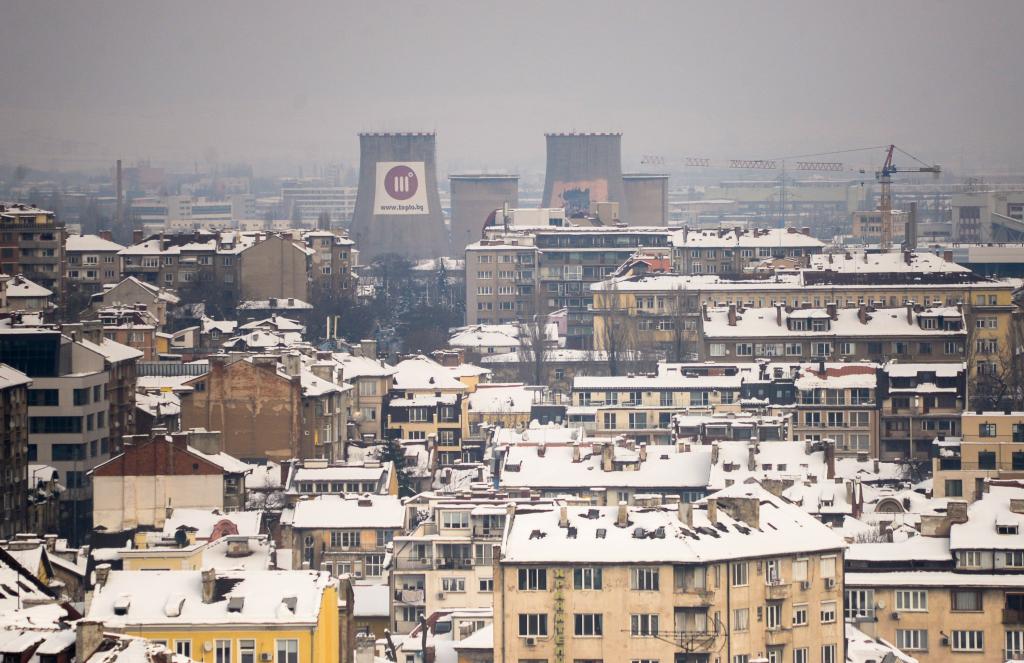Thessaloniki gets ready for its metro launch in November
The underground rapid transit lines have been under construction for almost two decades due to various project delays
 TheMayor.EU logo
TheMayor.EU logo 
Nearly 40% of Bulgaria's energy comes from coal plants , Source: Krasimir Svrakov for Brand Media Bulgaria
The EU Executive will not go forward with the Bulgarian post-Covid recovery plan before a commitment by the Bulgarian government
Yesterday, the Bulgarian Deputy Prime Minister of European funds management from the caretaker government, Atanas Pekanov, announced the European Commission would not accept Bulgaria’s post-Covid recovery plan until it sees a concrete commitment on the closure of Bulgaria’s coal-fuelled power plants. The other condition is that regional funding for the South-West Region is not sucked up by the capital – Sofia.
The Deputy Prime Minister was quoted by Mediapool, saying that he was surprised by the sharp tone of the European institutions on the two subjects. According to him, lawmakers in Brussels do not understand how hard it is to make decisions during a political crisis.
The European Commission wants firm and precise commitments out of Bulgaria; they want a timeline as words like ‘soon’ and ‘long-term’ are not enough anymore. According to the requirements for the recovery package, every country needs to have an integrated energy-climate plan until the year 2030, to meet the targets set out by the European Green Deal. Bulgaria has such a plan, however, there are no concrete deadlines in it.
According to the current document, the country needs to cut 1800 megawatts of coal and heat power in the next nine years, while the foreclosure of the three biggest power plants in the Maritsa basin is set after 2035, without any pre-laid out schedule.
At the same time, the Paris Agreement mandates that all signatories agree to close their coal plants by 2030 so that they can reach the climate protection targets outlined in the agreement.
The Association of Industrial Capital of Bulgaria made a statement the same day, in which they aired their support for a stronger commitment to decarbonisation. According to their statement, considering the threat of mission out on EU solidarity funds in the restructuring of the sector, they insist the government forms a roadmap for cutting carbon emissions. They propose a gradual reduction with intermediate deadlines in 2025, 2030 and 2035, largely mirroring what most of the EU strategy looks like.
At the moment, Bulgaria is highly dependent on coal because of its large deposits. Nearly 40% of the electricity comes from coal, with 36% being nuclear and 23% coming from renewables. Nearly 100,000 people work in the coal industry and a number of regions are quite dependent on coal jobs, including Pernik, Stara Zagora and Kyustendil.
The other condition of the EU Commission is that Sofia does not suck up the regional funds for South-Western Region. Initially, the European Union wanted the plan to cut funding of the region entirely, however, they changed their mind and are now willing to accept a written commitment.
The problem lies in the fact that the capital has a much higher score on pretty much every rating compared with the rest of the country: jobs, wages, opportunities, healthcare, etc. However, the region is home to Kyustendil, Pernik and Blagoevgrad, three smaller cities, that have faced a severe brain-drain to the capital and the regional funds could be a significant improvement in their situation.
Another important factor is that Pernik is a coal-town and surely, the gradual reduction of coal will negatively impact the job situation there. Pekanov argued that the region fund is essential to boost job creation in the area, diversifying local economies.

The underground rapid transit lines have been under construction for almost two decades due to various project delays

Now you can get your wine in Talence by paying directly in Bitcoin

That’s because the state has to spend money on updating the railway infrastructure rather than subsidizing the cost of the popular pass

Rethinking renewable energy sources for the urban landscape

The examples, compiled by Beyond Fossil Fuels, can inform and inspire communities and entrepreneurs that still feel trepidation at the prospect of energy transition

Now you can get your wine in Talence by paying directly in Bitcoin

The 10th European Conference on Sustainable Cities and Towns (ESCT) sets the stage for stronger cooperation between the EU, national and local level to fast track Europe's transition to climate neutrality.

At least, that’s the promise made by the mayor of Paris, Anne Hidalgo

The underground rapid transit lines have been under construction for almost two decades due to various project delays

At least, that’s the promise made by the mayor of Paris, Anne Hidalgo

Hostal de Pinós is located in the geographical centre of the autonomous region

Despite its church-y name, the district has long been known as the hangout spot for the artsy crowds

Urban dwellers across the EU are having a say in making their surroundings friendlier to people and the environment.

Forests in the EU can help green the European construction industry and bolster a continent-wide push for architectural improvements.

Apply by 10 November and do your part for the transformation of European public spaces

An interview with the Mayor of a Polish city that seeks to reinvent itself

An interview with the newly elected ICLEI President and Mayor of Malmö

A conversation with the Mayor of Lisbon about the spirit and dimensions of innovation present in the Portuguese capital














